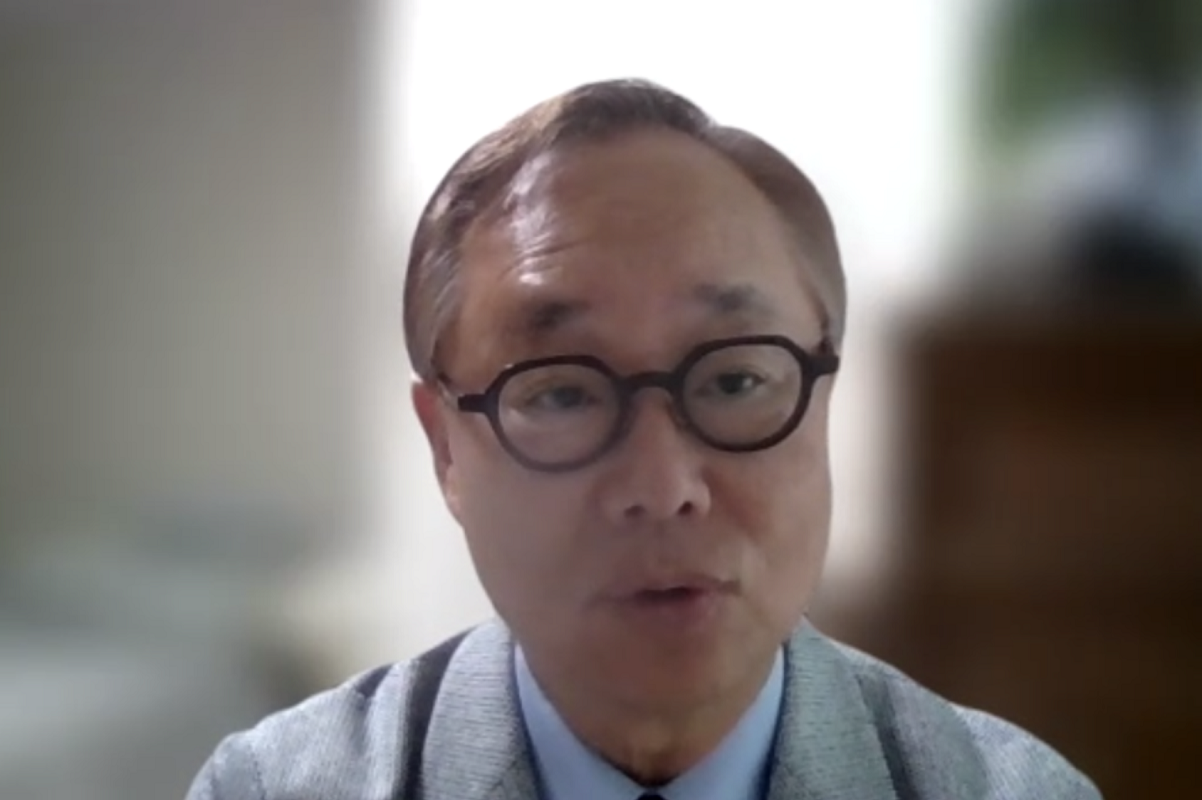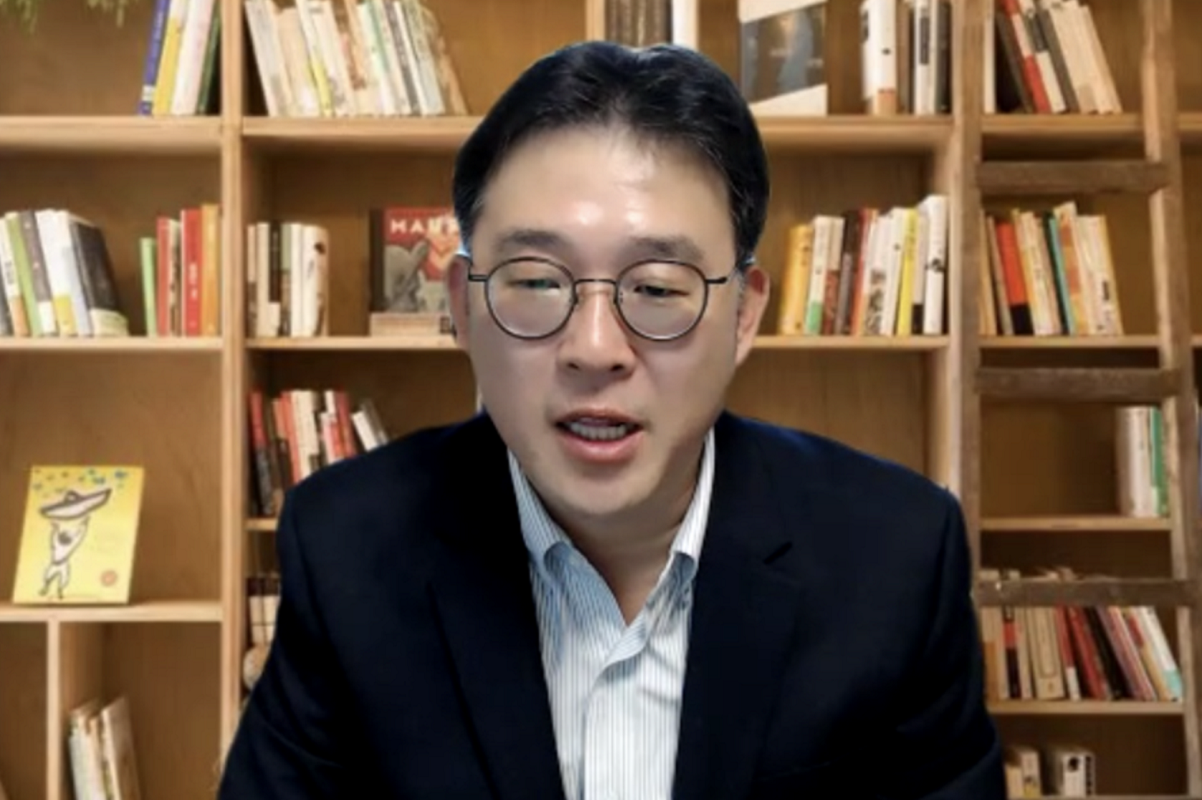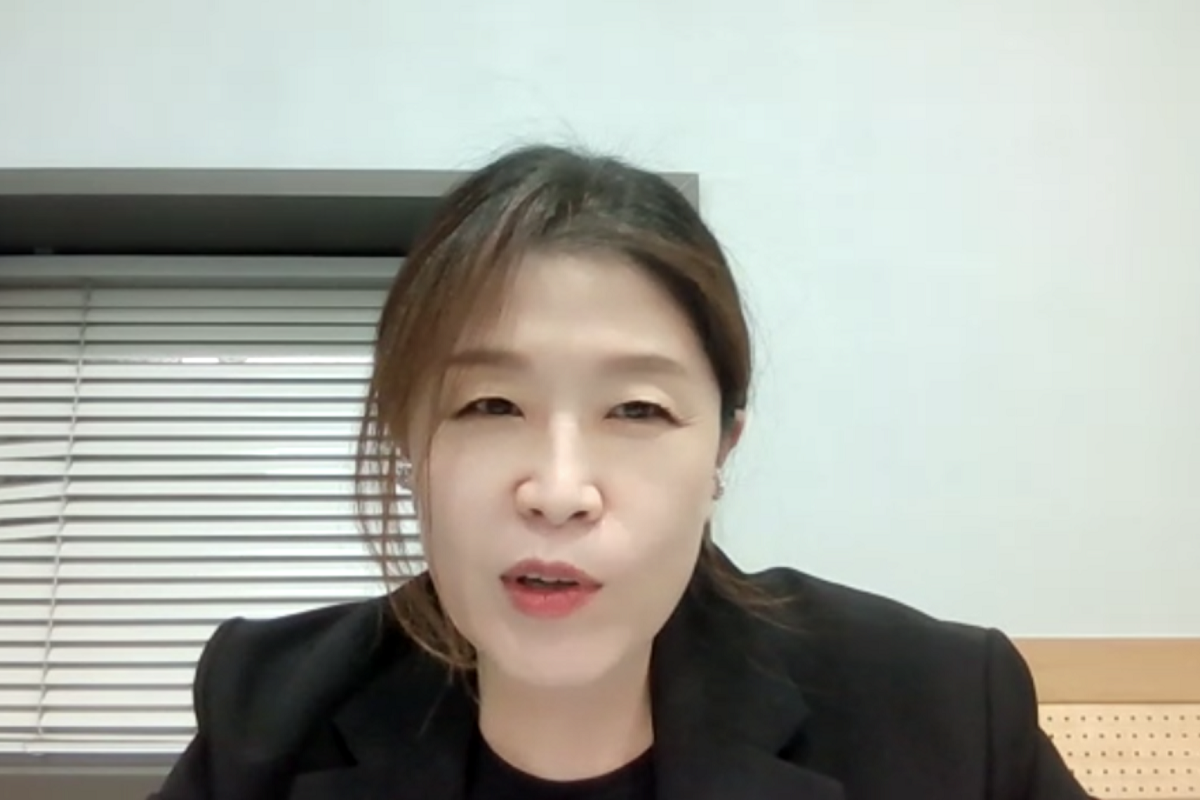Poetry in prose and prose in poetry: Pak Kyongni Festival brings together writings of the great Korean novelist and the Sun of Russian Poetry
St Petersburg University and the Dialogue Russia — Republic of Korea Forum (DRRK) held the fifth Pak Kyongni Festival. This year it coincided with the 225th anniversary of Alexander Pushkin’s birth.
In his welcoming speech, Lee Kyu-hyung, Chairman of the Korean Coordinating Committee of the DRRK Forum and Ambassador of the Republic of Korea to the Russian Federation, drew attention to the similarities between Pak Kyongni and Alexander Pushkin, who became the focus of the festival. ‘About 130 years separate these two writers. Today we are doing something special by bringing them together,’ said Mr Lee Kyu- hyung. ‘But we’ve done this before: it’s been ten years since a monument to Pushkin was raised in the centre of Seoul on the initiative of our Dialogue, and five years since the monument to Pak Kyongni was raised at SPbU. When I think of Pushkin, the first thing that comes to mind is romanticism. When I think of Pak Kyongni, the first thing that comes to mind is humble beauty. Even today, they continue to inspire in our hearts a sense of understanding, friendship, respect and love’.

Elena Chernova, the first vice-rector of SPbU, spoke at the festival on behalf of the university. Elena Grigorievna noted that Alexander Sergeyevich and Pak Kyongni are united by their love for the motherland, their country and their mother tongue. Pak Kyungni not only depicted the great and infinite variety of life with its joys and sorrows, but also the rich culture of the Korean people, while Pushkin not only sang of the beauty of native nature, but also showed the depth of the Russian people, she added.
The writer has a powerful tool in their hands, and it must be handled with great care. It can both divide and unite people of different cultures and faiths. The power of Pushkin and Pak Kyungni’s work and legacy is precisely that they do not divide, but unite.
Elena Chernova, the first vice-rector of SPbU
‘Thanks to the work of these outstanding representatives of our peoples, today, the festival participants from opposite ends of the continent can find points of contact and take one more step towards each other,’ said Elena Chernova, the first vice-rector of SPbU.
Ambassador Extraordinary and Plenipotentiary of the Republic of Korea to the Russian Federation Lee Do-hoon expressed his gratitude to the organisers and participants of the literary festival, which continues to be an unbroken tradition despite any obstacles and difficulties. ‘I am confident that our bilateral relations are based on the friendship between our peoples,’ said Mr Lee Do-hoon. ‘I have high hopes for the Dialogue Russia — Republic of Korea. Since its launch in 2010, the DRRK has played a leading role in promoting civil cooperation between the two countries in various fields — politics, economics, and culture.’
Andrey Kulik, Ambassador Extraordinary and Plenipotentiary of Russia to the Republic of Korea, noted the contribution of Lee Kyu- hyung and Nikolay Kropachev, heads of the DRRK Coordinating Committees, the Culture and Art Working Group, Korean and Russian philology scholars to the organisation of the festival. He agreed that the countries’ mutual interest in culture is growing and spoke about the projects supported by the Russian Embassy in the Republic of Korea, in particular the 5+5 translation project, the Sergei Rachmaninoff Music Festival, the visits of Russian writers’ delegations, and the Pushkin Readings.
We are well aware of the importance of building cultural bridges and introducing readers in our countries not only to classic Korean and Russian literature, but also to contemporary works. The Embassy has always supported and will continue to support efforts aimed at developing cultural dialogue and mutual enrichment of the cultural heritage of the Russian Federation and the Republic of Korea.
Andrey Kulik, Ambassador Extraordinary and Plenipotentiary of Russia to the Republic of Korea
Pak Kyungni’s grandson Kim Se-hee talked about the difficulties of the creative process. ‘In our time, literature may seem to have been forgotten. But in times like these, great works are born that heal the human heart. Pak Kyungni’s prose is an alchemical creation of patience and transformation,’ said Kim Se-hee.
Professor Seok Young-joon of Korea University, head of the Culture and Arts Working Group on the Korean side, returned to the theme of the similarity of the authors in her speech. The line from Pak Kyungni’s poem "Life" engraved on the base of her monument ("And why do both joy and sorrow become so bright for us?") reminded her of Pushkin’s words from his poem "On the Hills of Georgia": "My feeling’s sad and light; my sorrow is bright". Professor Seok Young-joon shared the view that the generations of the poetic world are interrelated: the themes in the poems of writers from different eras are in harmony with each other.

The keynote session was entitled «A Life of Poetry, a Historical Novel: The World of Pak Kyungni and Pushkin’», moderated by Ho Seung-chul, Director of the DRRK Korean Secretariat and Professor at Korea University. Professor Choi Ho-bin of Andong National University spoke about the poetic world of novelist Pak Kyungni. He noted that the poems were something like a diary for the writer, in which she expressed her feelings and experiences. She wrote her first poems while still at school in 1954 and her last before her death in 2008.
Professor Alexander Karpov, Head of the History of Russian Literature Department at the SPbU, spoke about the formation and artistic world of Pushkin the novelist. According to him, his creative journey began in the era of poetic genres. At first, Pushkin viewed poetry and prose in opposition: as, in particular, in a contrasting characterisation of the characters in Eugene Onegin (‘So, verse and prose, they came together. No ice and flame, no stormy weather and granite, were so far apart’). For Pushkin, poetry represented emotion, prose rationality. The two will gain equal standing in his work by the 1830s.
Pushkin’s original conception of the relationship between poetry and prose evolved. The initial unconditional dynamism of concepts is replaced by the idea of the relativity of the boundaries between them.
Professor Alexander Karpov, Head of the History of Russian Literature Department, SPbU
‘The publication of The Belkin Tales shows that prose is now on a par with poetry,’ Alexander Anatolievich noted. Characteristics and techniques peculiar to poetry enrich his prose. Later, Pushkin’s poetic approach to prose narrative was developed in the works of Mikhail Lermontov, Anton Chekhov and other Russian authors, Professor Alexander Karpov concluded.
The next session was dedicated to the memory of great writers. It was conducted by Hong Sanu, a professor at Gyeongsang National University and a member of the Culture and Arts Working Group. Professor Lee Seung-nyun of Incheon University presented Park Kyungni’s memorial sites and her literary legacy. He mentioned the new format of the Expresstour, a commemorative walk in honour of the 50th anniversary of the novel Toji. Yana Ponomareva, keeper of the documentary photo archive of the National Pushkin Museum, told about the history of celebrating Pushkin’s anniversaries — from the opening of the first monument to the 225th anniversary of Pushkin’s birth.

The final session, also chaired by Professor Hong Sanu, began with a presentation on "My Pushkin, My Russian Literature" by Professor Lee Ji-yeon of Hankuk University of Foreign Studies, Secretary of the Culture and Arts Working Group. The Russian philology scholar presented the history of the translation of Pushkin’s poems into Korean and shared her own perception of the great Russian poet’s work. According to Ms Lee Ji-yeon, when she was a student it was difficult for her to understand the reason why Russians love Pushkin so much, but later, after a deeper acquaintance with the Russian language and culture, she understood that the work of the «sun of Russian poetry» is a special rhythm that becomes music, which is very difficult to convey in translation. It was Alexander Pushkin, she concluded, who ushered in the golden age of poetry from the nascent Russian poetics.
Ekaterina Pokholkova, Dean of the Translation Department at the Moscow State Linguistic University, discussed the similarities between the two authors’ writing for a Russian-speaking audience. According to her, both are concerned with the role of the poet in society: whereas for Pushkin the poet is a prophet, for Pak Kyungni poetry and creativity in general are a shield, a form of defence. Yet both writers strive to positively influence their readers and the world around them, yet both feel attacked and rejected by society.
The report, "Point of Departure — 2013, Seoul... Point of Arrival — 2018, St Petersburg" was presented by Inna Tsoi, former director of the DRRK, Associate Professor of SPbU (Department of Korean Studies). Inna Valeriantovna, who took an active part in the construction of the Pak Kyungni memorial, recounted the whole process — from the selection of the site to the opening ceremony and the first Pak Kyungni Festival.
The festival ended with a traditional poetry recital. It was moderated by Inna Tsoi, Associate Professor at SPbU. The works of Pak Kyungni and Alexander Pushkin were recited by Maria Soldatova, Associate Professor at the Military University of the Ministry of Defence of the Russian Federation and the Russian State University for the Humanities, Ro Ji-yoon, Senior Lecturer at the Moscow State Linguistic University, Evgeny Grigoriev, a student of the Asian and African Languages Programme at SPbU, Han San-wan, former Vice Rector of Yonsei University, member of the Culture and Arts Working Group, Daniil Pospelov, a student of the Asian and African Languages Programme at SPbU, Lee Kwang-min, a poet and head of the Gangwon branch of the Korean Poetry Recitation Association, and Anastasia Gurieva, Associate Professor at SPbU (Department of Korean Studies). Lee Kyu-hyung, Chairman of the DRRK Coordinating Committee from the Korean side, presented a gift to all the participants of the festival by singing a romance to Pushkin’s poem «I loved you».

